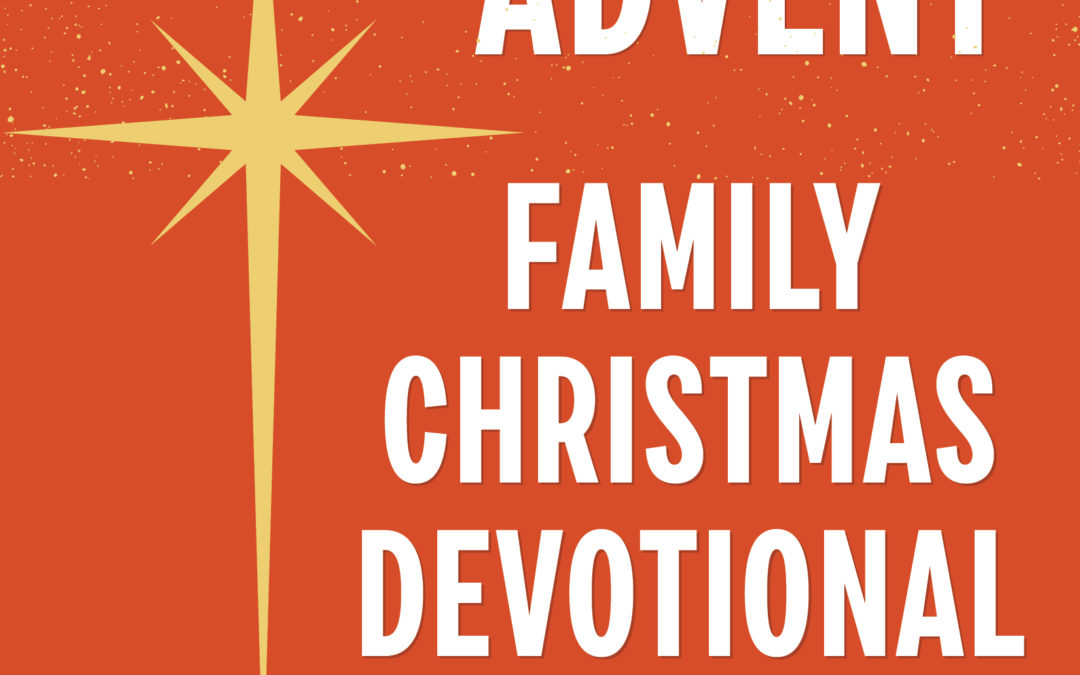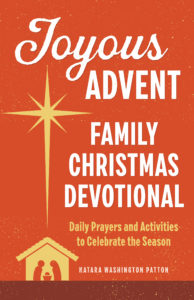by Mwikali Munyao | Jan 12, 2022 | Headline News, Prayers & Devotionals |
16 So I say, let the Holy Spirit guide your lives. Then you won’t be doing what your sinful nature craves. 17 The sinful nature wants to do evil, which is just the opposite of what the Spirit wants. And the Spirit gives us desires that are the opposite of what the sinful nature desires. These two forces are constantly fighting each other, so you are not free to carry out your good intentions. 18 But when you are directed by the Spirit, you are not under obligation to the law of Moses.
19 When you follow the desires of your sinful nature, the results are very clear: sexual immorality, impurity, lustful pleasures, 20 idolatry, sorcery, hostility, quarreling, jealousy, outbursts of anger, selfish ambition, dissension, division, 21 envy, drunkenness, wild parties, and other sins like these. Let me tell you again, as I have before, that anyone living that sort of life will not inherit the Kingdom of God.
22 But the Holy Spirit produces this kind of fruit in our lives: love, joy, peace, patience, kindness, goodness, faithfulness, 23 gentleness, and self-control. There is no law against these things!
24 Those who belong to Christ Jesus have nailed the passions and desires of their sinful nature to his cross and crucified them there. 25 Since we are living by the Spirit, let us follow the Spirit’s leading in every part of our lives. 26 Let us not become conceited, or provoke one another, or be jealous of one another.

Every day we make choices that impact our lives in a positive or negative manner. We may think of decisions and choices that we have made in the past that we regret and wish we could have handled better.
Galatians 5:16 reminds us that we are in a walk, not a race to fulfill our destiny and the only way we are going to achieve it is by doing it God’s way. His way is exemplified by the fruits that come forth when we are obedient to the leading of His Spirit.
As we walk with the Lord, the fruits of the Spirit impact our character and make us more like Christ. When we identify ourselves as believers who love Jesus we choose to willingly sacrifice anything that does not please Him. Holy Spirit helps us gauge our passions and desires with His will and purpose and if they do not line up, we are willing to lay them aside.
Keeping in step with the Spirit means we are daily tuned in to what God has to say about our lives, and open to adjust accordingly to what His word and will says. As we grow in Him and develop in the fruits of the spirit, our character is given an opportunity to grow and develop and mature.
In time, we begin to model Christ-like behavior. We resist and overcome the things that used to control us and bind us to our old nature before we submitted to Christ because our desire is to please God.
As you make decisions this week, examine and evaluate whether the results of those decisions will draw you closer or further away from the will of God. Remind yourself that you have the ability to choose right, and become more like Jesus Christ.

by Chriska François, Urban Faith Contributing Writer | Dec 17, 2021 | Commentary, Headline News, Prayers & Devotionals, Social Justice |
Adapted from a Spoken Word
A brown man taught me how to love and He taught me about faith, too.
On a Friday night, He was tragically killed by brutal state-sanctioned force for “crimes” he did not commit.
Left to die there in cold blood, his body hung lifelessly before his weeping mother.
Back then, Calvary trees did bear strange fruit.
He died a living sacrifice.
The Ultimate Martyr for the benefit of all. And all He ever asked for was our faith. In Him. In Love. In the mountain-moving, overflowing, miracle-working, revolutionary and soul saving power resting in His pierced hands.
But we want safe Jesus.
We want a sweet by and by in the sanctity of our own hearts and silence in the face of skeptics.
We want prayers answered but doubt every chance we get.
We sit 21st century Jesus in a cute little box decorated with our every wish.
We are a generation clinging to faith by a thread….
Yet, we’re trapped in 21st century strait jackets threaded in skepticism and laced in fair-weather Christian faith.
Yet, we’re searching for God in places we need not… as He stands, pierced hands, open-wide.
Yet, we’re too blind to see the same brown man who casted out demons, walked on water, and healed with the touch of His hand is the same One we bow before today.
Whatever happened to that “I won’t go unless your presence goes with me” type faith?
That “I’d rather be burned alive than to bow before your idols” type faith?
That “PUT ME IN A LION’S DEN, IF YOU WANT TO” type faith?
That “ran my biological clock but still expecting” type faith?
That “come against giants… with a SLINGSHOT” type faith?
That “I don’t see the promised land, I don’t see it, but Lord….I’ll walk” type faith?
I want a throwback type faith.
That old-school faith you could feel in your bones.
The type that made Aunty jump in circles in the church.
That sit in your prayer closet and pour out your heart.
That never woulda made it without you.
That—“this is my last dollar, Lord, be my last dream.”
I won’t settle for a Sunday morning and done type faith.
I want to see. And touch. And hear. And taste the goodness of God 25/8.
These hands, they WILL heal, WILL bless, WILL be lifted to praise the Lord.
The sea-splitting, earth moving, life-breathing, King of kings and Lord of lords!
The Name above all names, worthy of ALL our praise.
The One to whom every knee will bow and every tongue shall confess.
The One who was, and is, and is to come.
The only God in history that ever came down in human form and humbled himself to relate to me.
So if anyone should ever ask, a brown man taught me how to love, and he taught me about faith, too.

by Allen Reynolds, UrbanFaith Editor | Dec 7, 2021 | Headline News, Prayers & Devotionals |
 Advent is a wonderful time for reflection and devotion as believers look forward to Christmas and its significance for our faith. UrbanFaith had the opportunity to have a Q & A session with Katara Washington Patton, the author of Joyous Advent: Family Christmas Devotional. The exchange is below, edited for clarity.
Advent is a wonderful time for reflection and devotion as believers look forward to Christmas and its significance for our faith. UrbanFaith had the opportunity to have a Q & A session with Katara Washington Patton, the author of Joyous Advent: Family Christmas Devotional. The exchange is below, edited for clarity.
It is so good to have you share with UrbanFaith again and your new and relevant book. Advent is a great opportunity to reflect, be inspired, and deepen our relationship with God and others, so I’m grateful for your book.
1. A lot of people are not as familiar with Advent as some of the other major holidays such as Christmas and Easter. What is Advent and why is it important for believers?
Advent is the period leading up to the observance of our Savior’s birth–Christmas; Advent is observed during the four weeks before Christmas and normally begins the last Sunday of November. Advent means to anticipate the coming of Christ (remembering how people anticipated His birth and how we anticipate His second coming).
2. What inspired you to write a book of devotionals for this holiday season?
I love devotionals; they have been one of my main sources of growth. They are shorter readings you can do mostly every day, which increases your faith through reading and reflecting on Scripture. So, whenever I’m given the opportunity—as I was by my publisher with this book—I jump at the chance to write material that can help people grow in faith. This one particularly is for the entire family…so adults and children can learn from it.
3. You were very intentional at making this a FAMILY devotional, why is that important to you?
We know Family can mean…grandmother and child, two parents and children, auntie, uncle, big sister, etc. So I like the fact that families—whatever your definition is—can center themselves around a scripture and reading and explore its meaning, have activities to do. This can be done alone as well but it is written at a level children will understand too. I think that’s important…for my family, my child has a different Christian education than I did. I went to Sunday school every Sunday because my mom was the superintendent and my dad a teacher; today, pre-pandemic, my child was in a class at church maybe once a month or so (due to several reasons like the format of classes at our church); and now with the changes due to capacity limits and the pandemic, she’s not in a class. Where does she learn those fundamental lessons we learned? In family devotions, I hope and pray.
4. I love the format of your devotions, why did you decide to include activities as well as the traditional prayer and Scripture inspirations?
I’ve always been a person who looks at learning and even ministry from a practical stand point. If I can’t apply this lesson to my life, then it’s just words. Activities help reinforce the application of the lesson. I’m always going to look for a way to bring home the point through activities.
5. How has choosing devotion during Advent and Christmas impacted your faith journey?
I loved rediscovering many of the stories I selected: Jesus’ genealogy, Simeon and Anna, even Noah and the rainbow, Elizabeth and Mary, even Abigail and David– all to drive home the four themes of Advent: hope, peace, joy, and love. I think we need to tell these stories over and over again to remind ourselves and to teach our children of the goodness of God and the amazing faith journey we have been presented with as we journey ourselves. Utilizing these devotions can also help us connect the faith stories within the Bible to our own faith story based on our belief in our savior’s birth.
6. What advice would you give to our audience who may be trying to grow in their faith?
Other than read my books?! Lol. Honestly, read your Bible and supplemental material of your choosing faithfully. If you find one devotional or book isn’t giving you enough or inspiring you to read regularly, find another. There are so many different formats we can utilize for Bible reading and devotions that you can find something that is speaking to you in the moment. Being consistent is key. I enjoy waking up and having that time with God; I understand it may be car time for another or bed time or lunch time for others—but the consistent practice of carving out that time to study, reflect, and pray has been my saving grace.
Joyous Advent: Family Christmas Devotional is available everywhere books are sold.
by Anthony Jones II | Nov 28, 2021 | Headline News, Prayers & Devotionals |
I’ve been fortunate enough to never feel death. Sure, I’ve known people who have passed away and they’ve had a profound effect on my life. However, I don’t think anything can prepare you to lose someone before their time. That frank and unrelenting grief as you grapple with the fact that you have to keep moving forward alone seems like it could crush you anyday. I didn’t even know this feeling existed until I tried to take my first step into the future.
For me, that means graduate school in another city far away from my home and the people I’ve grown up with and came to love. I don’t know why, but whenever I think about leaving it seems impossible. I can’t shake this sense of foreboding that if I go, then I turn my back on the life I have here. Despite this, I feel compelled to step forward. I know that staying safely nestled in my comfort zone isn’t the goal God has for my life. So, I am torn between the stability and community of my home and the responsibility I have as a child of God with gifts and talents.
Another biblical hero faced a similar dilemma. Abraham had always longed for a son. When God finally blessed his wife with a child, he was overjoyed and loved the child deeply. One day, God instructed Abraham to take his son to the top of Mt. Moriah and offer him as a sacrifice. Despite the immense love for his son, Abraham recognized that everything in his life came and went by the favor of God, including his son. Abraham obeyed, not so much to offer his son to God, but to return to the creator what was his to begin with. Honored by his obedience, God allowed Isaac to live and provided a ram to replace the child.
This is one of the most elementary bible stories, but I feel as though it is taken for granted. The crux of the story is sacrifice. To Abraham, Isaac was everything he ever wanted. To be asked to give him away was the same as asking for his own life. He was in a safe place. Then, God called him from that place and asked him to risk everything. Abraham obeyed without question. In turn, not only did he keep his son, but he was blessed with another sacrifice entirely. The Binding of Isaac is often repeated but seldom understood. To me, it illustrates humanity’s relationship with God, the value of obedience, and the security and peace available when you trust in God.
Perhaps the reason I am having such a hard time moving on is because I pride myself on the relationships I built in my home. However, the truth is that these deep and beautiful relationships would never have come into existence without the grace and favor of God. Furthermore, as a Christian, I have a mandate to use the gifts at my disposal to spread God’s love as far as possible. As long as I am working with that goal in mind, then I must move forward to greater and greater things even if that means leaving people who can’t follow me through that journey. I can move forward with the knowledge that those same people will reap the benefits of my obedience, if not now than in the future.
There is no reason to be afraid of moving forward. In the same way that there was a ram in the bush for Abraham, God sees the sacrifices we make every day. While right now it might seem like your whole life is being put on the altar, these shifts happen with intention and when you submit to the will of God, he provides everything you need and more. Perhaps from this perspective, those goodbyes don’t have to seem so long.
by Anthony Jones II | Nov 21, 2021 | Headline News, Prayers & Devotionals |
 Merriam-Webster dictionary defines worship as “to honor or show reverence for as a divine being or supernatural power.” This seems a functional working definition but anyone will tell you that worship means so much more than this. Perhaps your clearest experience has been in church, lost in the buzz of music. Maybe you first felt worship in the deep, sinking envy of celebrity. Worship pushes us to sacrifice everything from time to money to ambitions.It is also an experience highly prized by God. From the Hebrew exile from Egypt to Jesus’ ministry on Earth, exclusivity in who we worship has been one of the main themes throughout the Bible. Even Lucifer, who is described as being crafted by God with instruments inside his very being, is described as perfectly fit for worship. So why does God prize this quality so highly and what exactly qualifies as worship?
Merriam-Webster dictionary defines worship as “to honor or show reverence for as a divine being or supernatural power.” This seems a functional working definition but anyone will tell you that worship means so much more than this. Perhaps your clearest experience has been in church, lost in the buzz of music. Maybe you first felt worship in the deep, sinking envy of celebrity. Worship pushes us to sacrifice everything from time to money to ambitions.It is also an experience highly prized by God. From the Hebrew exile from Egypt to Jesus’ ministry on Earth, exclusivity in who we worship has been one of the main themes throughout the Bible. Even Lucifer, who is described as being crafted by God with instruments inside his very being, is described as perfectly fit for worship. So why does God prize this quality so highly and what exactly qualifies as worship?
In Romans 12:1-2, Paul expounds on what worship should mean to believers. He says that we should “offer your bodies as a living sacrifice, holy and pleasing to God—this is your true and proper worship.” He calls this true and proper worship, which is a pretty radical and quite frank definition of what worship means in the Bible. It is not just an act of sacrifice or a passionate outpouring of emotion, worship comes from a place deeper than that. Worship is a mindset that comes from a place of absolute faith which motivates one to act mercifully and with empathy. From here, it seems pretty self-evident why God places such a high premium on this quality.
In Matthew 6:24, Jesus says the following while giving his fundamental sermon on the mount: No one can serve two masters. Either you will hate the one and love the other, or you will be devoted to the one and despise the other. You cannot serve both God and money. For better or worse, this has become somewhat of a contentious verse within the church.
In a country where capital is very highly prized, it is easy to slip into the total pursuit of wealth and justify the ethics for the quest after the fact. It’s easy to find yourself devoting every minute of your life pursuing more and more wealth for more than the sake of survival but because that wealth gives your life value. This is not a phenomenon exclusive to wealth, however. Fashion, celebrity, public attention, academic pursuit, all of these things can become objects we worship by devoting ourselves to them entirely without leaving room for God in our lives. Instead of bending our lives to fit God in, we sometimes try to bend God.
This is not to say that you shouldn’t have hobbies or interests, or that you can’t pursue wealth in any measure. We are each unique individuals made with specific talents and goals. This is more to say that whatever those talents and passions are, we must be sure that they are being used in service of our creator and not in pursuits of narcissistic self-aggrandizement.

by Anthony Jones II | Oct 18, 2021 | Headline News, Prayers & Devotionals |
A lot of people are making the switch to becoming vegan, but what does being a vegan have to do with our faith? Here our 3 ways becoming a vegan has helped my walk with God.
- Discipline
The reason that I decided to even attempt this wild endeavor in the first place was to get a better grip on my health. If the last two years have taught me anything, it is not to take my time for granted. For as long as I could remember, food was always more than just food to me. It had emotional weight to it, like seeing an old friend for the first time in a long time. Having to learn to eat for a purpose instead of for comfort has probably been the hardest part of this whole transition. Eventually, I accepted that there was no magic bullet that could reconcile these two different views of food. The key to success was discipline, getting up and holding myself accountable to the standard I had set for myself. This has begun to seep into other parts of my life, including my prayer life. Slowly, I’ve noticed it’s easier to get the motivation to do things that aren’t necessarily the most exciting but are important including reading my Bible and praying.
2. A greater appreciation for nature
Another consequence that I have noticed as a result of giving up meat is that I have a greater appreciation for nature. Before, I recognized that much of my diet was directly disconnected from me either through processing or butchering. Since the switch though, I find that I obviously eat a lot more raw fruits and vegetables. As a result, I have to be intentional about what I’m putting in my body which means learning what food contains which vitamins and minerals. I was actually in the grocery store trying to buy some peppers when I realized just how perfectly God built this world for us. Everything we need to live comes from the Earth, nature is a system built to take care of us. Even animals each have their function beyond just food for us, although they often become food for other things. However, what this means is not that we should take these resources for granted, they are special. God commands Adam to look after his creation mere verses after creating him. Nature is not just something to be manipulated for personal gain. It takes care of us and we, in turn, should take care of it.
3. Greater appreciation for myself
As I said earlier, one of the major motivations for my decision to go vegan is to improve my health. I’ve only been doing this for a few weeks but all of the things vegans say they felt after switching are actually pretty valid. My skin is clearer than it’s been in years, I have a lot more energy, and I’ve actually lost a few pounds too. Perhaps the best change that has happened concerns my relationship with eating. Before the switch, I’d always felt a little guilty after eating something. I’ve never been a small person and that comes with certain hang-ups like being self-conscious about what you put in your body. Since the switch, I haven’t really felt like that. Even when I slip up, I know that I am doing the right thing by getting back on track the next day. That level of self-assurance is nice, it drives me to exercise and to keep going even when I really want to tuck into a juicy rack of ribs. It also just makes me feel more confident in general. Jesus calls loving your neighbor as yourself one of the most important commandments and people tend to latch onto the first part without stopping to consider the second. It’s hard to love your neighbor when you hardly love yourself. I’m not just talking about confidence, but also your physical self. Switching has made me feel like I’m treating my body as a temple for the first time in a long time. I feel more capable of reaching my goals and working to advance God’s kingdom
I didn’t make this piece to win over converts to veganism. If you’re considering it then I think you should give it a try, but the most important goal is to get healthy and stay healthy. Of course, this process is going to vary from person to person but the most important part is the first step. Go for a run, make a meal plan, or just talk about health with your friends and family members. These are all great first steps to a healthier life and you might even learn something on the way.




 Advent is a wonderful time for reflection and devotion as believers look forward to Christmas and its significance for our faith. UrbanFaith had the opportunity to have a Q & A session with Katara Washington Patton, the author of Joyous Advent: Family Christmas Devotional. The exchange is below, edited for clarity.
Advent is a wonderful time for reflection and devotion as believers look forward to Christmas and its significance for our faith. UrbanFaith had the opportunity to have a Q & A session with Katara Washington Patton, the author of Joyous Advent: Family Christmas Devotional. The exchange is below, edited for clarity.
